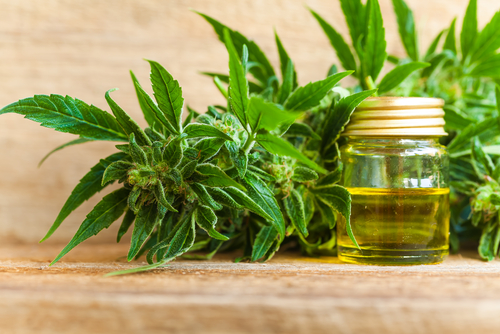Thanks to television documentaries, viral Facebook stories, and websites such as this one, you’ve probably heard about CBD oil. You’ve likely heard that it is derived from the cannabis plant, that it is used to treat a variety of afflictions, and that it cannot get you high. Right? But what of all that you’ve heard is true? Below, we’ve answered 10 common misconceptions about CBD oil in order to help people who may be new to it sift through CBD oil’s many true benefits.

Table of Contents
- The Top 10 Most Common Misconceptions About CBD Oil
- CBD is just another type of marijuana.
- CBD is not psychoactive.
- Only adults should use CBD oil.
- CBD oil is illegal.
- You can become addicted to CBD.
- CBD is good, THC is bad.
- CBD works best without THC.
- CBD becomes THC once it enters the body.
- CBD oil from hemp is a sedative.
- CBD is CBD, regardless of where it comes from.
- Additional Resources on CBD Facts
The Top 10 Most Common Misconceptions About CBD Oil
Misconception #1:
CBD is just another type of marijuana.
CBD is NOT marijuana. Though the two can come from the same cannabis plants, CBD is often derived from hemp, and by nature has 0-0.3% THC — approximately 33% less than even the weakest strain of marijuana, and not nearly enough to give you a high.
Misconception #2:
CBD is not psychoactive.
This misconception is a very common one, and for good reason. As previously mentioned, one cannot get high from CBD alone because CBD is not intoxicating. However, it is psychoactive because it does affect one’s mental state, hence its use for things like anxiety and depression. Because it can positively affect a user’s mind, it is more accurate to say that CBD is non-intoxicating.
Misconception #3:
Only adults should use CBD oil.
For those who believe CBD oil is just another type of marijuana, the misconception that only adults should use it is a natural misunderstanding. But because marijuana and CBD oil have very different effects on the body, and because CBD oil contains little to no THC, nothing concrete has ever suggested that CBD oil is unsafe for use by children. In fact, CBD oil has steadily risen in popularity thanks to certain CBD strains drastically improving the health of children who suffer from epilepsy.
Misconception #4:
CBD oil is illegal.
For those who live in the United States, it is completely legal to purchase and use CBD oil derived from hemp. Whether you order online, or purchase over the counter at a health store, this particular form of CBD oil is legal because hemp, unlike other cannabis plants, is not included in the federal Controlled Substances Act.
Misconception #5
You can become addicted to CBD.
You cannot become addicted to CBD oil of any kind. In fact, studies have shown that CBD oil actually blocks the addictive effects of morphine and other highly addictive painkillers by reducing the pleasure the body feels upon taking it.
Misconception #6
CBD is good, THC is bad.
Perhaps this misconception stems from the fact that marijuana, which contains THC, is illegal in most places. But while CBD certainly has a long list of health benefits, THC offers its own advantages, as evidenced by its successful use by cancer patients.
Misconception #7:
CBD works best without THC.
Similar to the idea that CBD is better than THC is the misconception that CBD works best without THC. This too is false. THC and CBD are the two most common compounds found in cannabis, and as such they work best together. A number of scientific studies have shown that THC and CBD, when allowed to work together, actually enhance each other’s effectiveness.
Misconception #8:
CBD becomes THC once it enters the body.
Though one early study seems to suggest that CBD converting to THC in the body is possible under very specific circumstances, those circumstances seem to be limited to experiments only.
Misconception #9:
CBD oil from hemp is a sedative.
CBD oil from hemp can act as a sedative, but not consistently enough for this to be considered fact. CBD oil that can be used as a sedative does not usually come from hemp, and has gone through specific preparations that include monoterpenoid, or myrcene.
Misconception #10:
CBD is CBD, regardless of where it comes from.
Because the market for CBD oil is relatively new, there aren’t many regulations in place for ensuring quality. Thus, this particular misconception is an easy one to fall for. For example, a higher quality CBD will have been safely extracted from a trusted plant source and have its ingredients clearly labeled.
